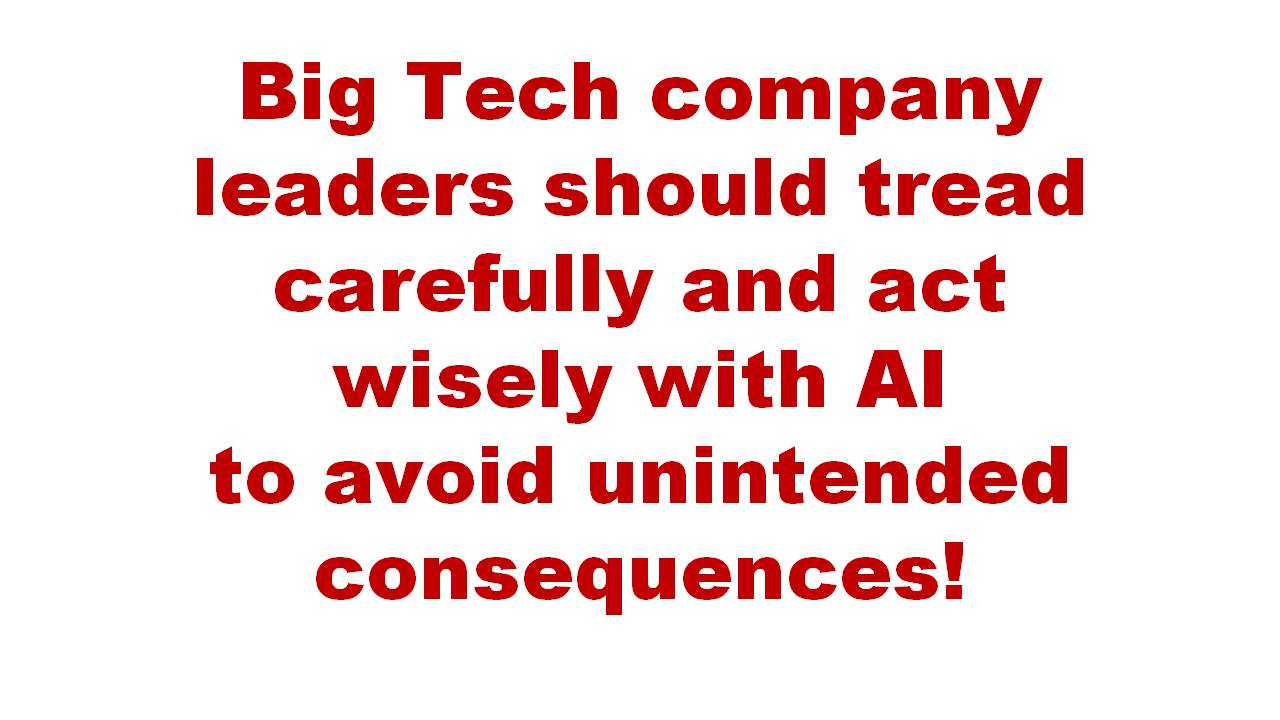by Peter A. Arthur-Smith
“The tech industry has a new strategy for getting us to upgrade our aging devices: artificial intelligence.” From article by Christopher Mims in Wall Street Journal Exchange, June 2024 – ‘The Big AI Question: Are You Ready to Pay For It?”

Although we should objectively accept the intent of tech companies to offer fresh advantages and value with AI, we shouldn’t overlook their heavy commercial thrust behind this push. As the competing pressures grow within their industry to overcome customer resistance to continuously invest in their products and services and prevent their revenues from flagging; it will require vigilant strategic leadership by user organizations to responsibly utilize AI and keep the tech industry’s voracious appetite for profits in check.
There’s no doubt that the tech companies want us to rapidly become dependent on AI, irrespective of its real value, to bolster and sustain their revenue streams. Their near term market power is sufficient to bend us in their direction – value or not. Users are being offered voice-assisted and empowering systems to help complete an array of tasks. The tech industry is banking on us becoming dependent on AI to reinforce their market prestige and reverse our current trend of hanging onto our devices as long as possible. You can therefore expect to be regularly ditching your current devices in order to keep up with generative AI.
Reversing the current consumer drag will require having faith in AI’s future competence, as well as address the likely human instinct to push back against AI consuming our lives and its supposed capacity for replacing human judgment. Again, to the extent we know, AI does not possess the sentient capabilities we are led to believe…yet! If we believe it has sentient capabilities, we could then be steadily approaching a level of people-resistance that we cannot yet envisage.
Depending upon the impact of an array of AI tools, they will either boost or undermine workplace people’s confidence levels. Astute leadership will be required to address the impact either way. Leaders should be mindful of encouraging their team members not to lose their self-respect or become over-reliant upon these tools to the point where their current innate capabilities and judgment atrophy – in other words they become semi-robots. It will become a battle between dependency and stretching people’s capacity to contribute more.
If we allow dependency, then society and workplaces could become increasingly barren and robotic. If we permit AI to draw-out people’s full potential, then society will benefit in innumerable ways and workplace people will increasingly become fulfilled. Regrettably, with the forces currently at play, I’m not banking on the latter. There is more than an exploitative tone in today’s AI market play.
Again, such issues underscore the need for leaders to step-up. Conventional managers are more likely to fall in line with systemic, robotic workplaces, since it will offer them even greater control over their people and the prospect of enforced productivity. Control allows for compulsion where people feel they “have to.” That’s not a good formula for a satisfied and creative work environment. Enlightened leaders, on the other hand will find the right balance and create environments where their people “want to” contribute as much as possible.
In “want to” workplaces, AI will appropriately challenge people to utilize their talents to the full. “Want to” workplaces will not permit people’s inclination to allow “something else” do their thinking for them. Such situations are a potential trap, since people often allow others to think for them until those “others” incur errors or make them look foolish. When that happens, people suddenly wake up to their folly. At such moments AI or its sponsors will be in trouble.
During the last century there was tremendous societal strife and loss of life due to societal backlashes against people exploitation and lack of respect for people’s capabilities. Unionization became very powerful to give people a much stronger voice in their workplaces. We are beginning to see similar turbulence both in the US and Europe with increasing political divisiveness, especially with our growing emphasis more on numbers than people potential and sensibilities. We don’t need greater societal turbulence to return, since the outcomes are hard to predict. Consequently, we should encourage tech company leaders to tread carefully and act wisely with AI to avoid unintended consequences.
